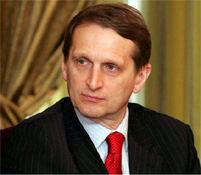A bunch of Tatars living in Ukraine have imposed a trade blockade on Crimea by preventing the passage of delivery trucks from this country to the Russian peninsula. Huh?
According to Mustafa Azizov, first deputy head of the Dzhankoi district administration, this year Crimean agricultural producers gathered a good crop of grain, vegetables and fruit. Thus the economy of the Russian peninsula has become self-sufficient.
Yuri Shevchenko, chairman of a Crimean parliamentary committee on agrarian issues, said the neo-Nazi regime in Kiev would get the worst of the blockade because Ukrainian producers would lose traditional markets. A traffic capacity of three checkpoints in the Kherson region on the border with Crimea has been less than 250 delivery trucks per day before the trade blockade. By comparison, the traffic capacity of a ferry service from the Krasnodar Territory to the peninsula amounts to some thousands of delivery trucks with Russian goods every day.
Today Crimean stores sell a full range of dairy produce made in the Krasnodar Territory, Rostov region and peninsula. This also holds true for sausages. At the same time, melons and watermelons are delivered from the Krasnodar Territory and Astrakhan region.
The trade blockade is seen by many observers as the act of despair. All attempts to isolate Crimea are doomed to failure.

